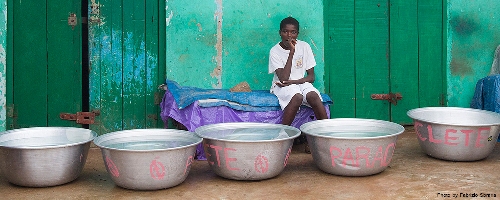Our Goals
International Protocol for the human right to water and sanitation 
By 2050, the global demand for water is expected to increase of 85% compared to current consumption, the demand for food of 130%, the demand for energy of 135%, while we still wonder about the negative effects of climate change. Water crisis is expected in the next future. The human right to water will be challenged by the increasing scarcity of water, due to demographic growth, to impact of climate changes and above all to economic and financial choices taken by Governments for the use of common goods according to the dominant model of economic growth.
The proposal of an International Protocol has the goals of:
⇒ making the implementation of human right to water mandatory for States and the International Community;
⇒ allowing each citizen or community to sue States in defence of the human right;
⇒ building up a new model of global governance of water resources, better suited to the respect of the human right to water than the current governance by the World Forum dominated by World Bank and multinational corporations of the water market.
⇒ identify, through the mobilization of citizens, social movements, NGOs and associations, a group of States and Institutions willing to open negotiations for a Second Protocol to the International Covenant on Economic, Social and Cultural Rights.
Water policy nowadays is actually oriented by other principles than the universal human right to water, and its main tendencies counteract its realization. This is why we need to build up a new model of government of water based on the human right to water and sanitation, namely in order:
1.to oppose current tendency to treat water as a commodity regulated by markets : if water is a universal human right and a condition for the human right to life, States ought to guarantee free access to water and protection of the resource from waste and pollution with respect to future generation, according to a different logic than market.
Read more
2.to oppose financialization of water: if water is a universal human right, it cannot be transformed in financial assets, producing profits and returns, nor exchanged on the stock market.
Read more
3.to oppose devastating phenomena such as water and land grabbing : if water is a universal human right and a common good, local communities cannot be deprived of water, diversion of water from watersheds is forbidden, as well as other destructive practices such as fracking and dams building.
Read more
4.to oppose current discretion of States , in the absence of a global political Authority on water, in defining their water laws and their systems of compensation for victims of a violation of the human right to water and sanitation.
Read more
Via Torino, 77 - 33100 UDINE
Telefono cellulare: 3274293815
info@contrattoacqua.it


